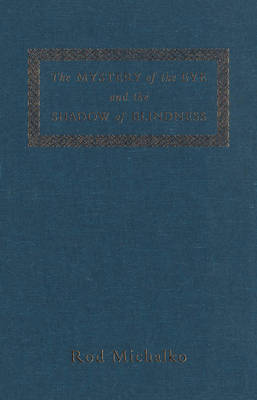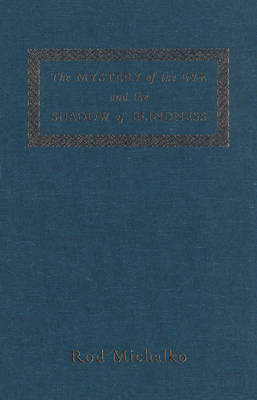
- Afhalen na 1 uur in een winkel met voorraad
- Gratis thuislevering in België vanaf € 30
- Ruim aanbod met 7 miljoen producten
- Afhalen na 1 uur in een winkel met voorraad
- Gratis thuislevering in België vanaf € 30
- Ruim aanbod met 7 miljoen producten
Omschrijving
Blindness is commonly considered to be a physical condition with negative consequences for its sufferers. Most research and treatment begin with the assumption that blind persons require adjustment and training to cope with their distorted view of reality. For Rod Michalko, blindness offers a legitimate way of being and a teaching tool - one that presents a unique perspective on aspects of the world that the sighted never experience and that the disciplines of ophthalmology and rehabilitation never consider.
This book explores matters of choice and personal fulfilment in the context of blindness. Ophthalmology and rehabilitation use sheer necessity as their guiding principle, but the blind person must grapple with the question of what kind of blind person he or she chooses to be. The story of blindness is retold in the life of every blind person and whenever blindness is thought about, spoken of, or acted upon. Michalko immerses himself in this multiplicity of narration, weaving his own experience of blindness through it, using it as an occasion to think about life, our decisions, our choices, including how we choose to understand each other, and the ways we choose to live collectively in the human community. He wants you to consider what can be produced by thinking of blindness as an essential part of being.
This is an important book for anyone who has personal or professional contact with any community of disabled persons, particularly the blind, as well as anyone who simply wants to better understand what it means to be human.
Specificaties
Betrokkenen
- Auteur(s):
- Uitgeverij:
Inhoud
- Aantal bladzijden:
- 224
- Taal:
- Engels
Eigenschappen
- Productcode (EAN):
- 9780802042507
- Verschijningsdatum:
- 1/03/1998
- Uitvoering:
- Hardcover
- Formaat:
- Genaaid
- Afmetingen:
- 156 mm x 222 mm
- Gewicht:
- 562 g

Alleen bij Standaard Boekhandel
Beoordelingen
We publiceren alleen reviews die voldoen aan de voorwaarden voor reviews. Bekijk onze voorwaarden voor reviews.











